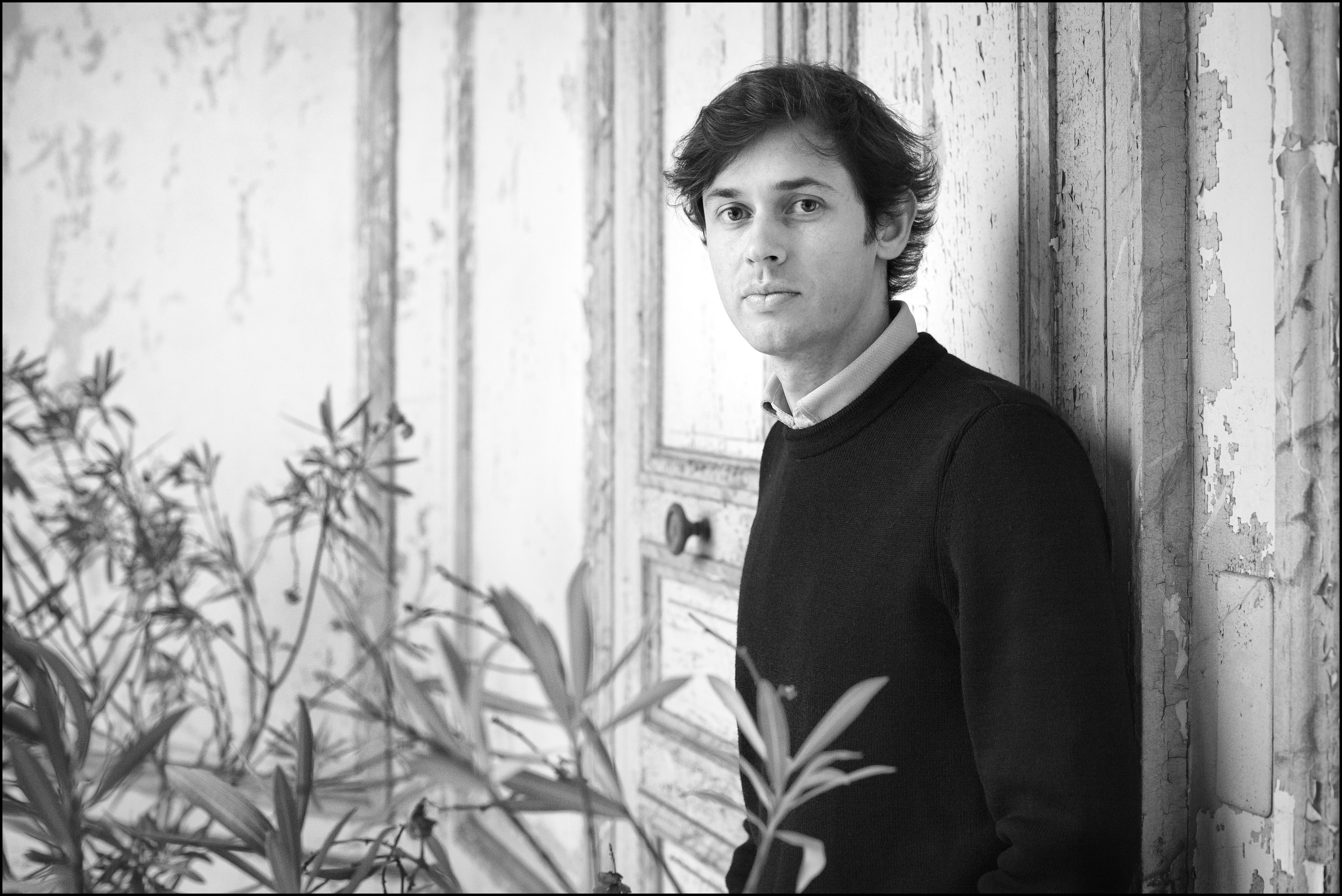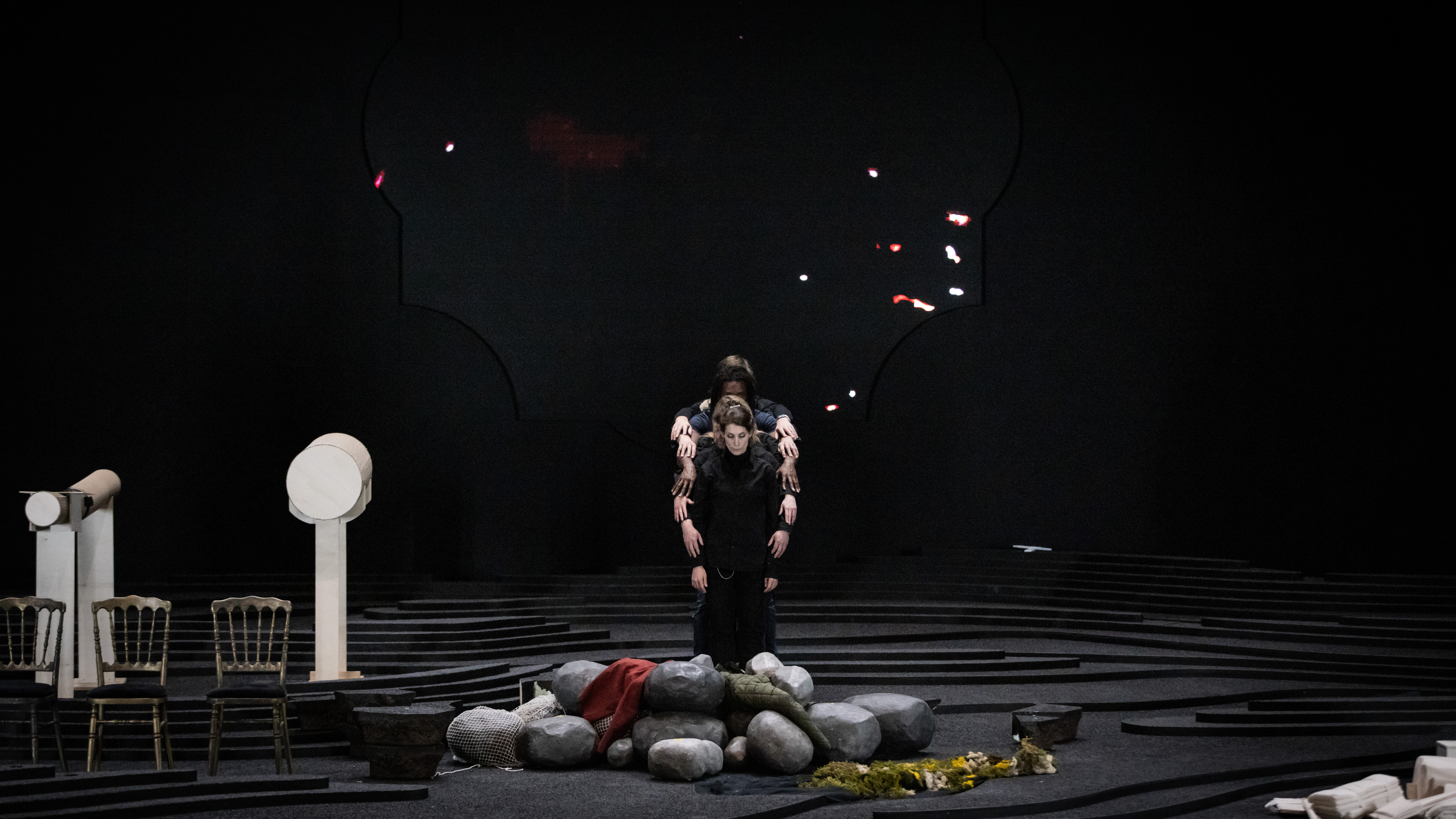Maxime Pascal, the opera of the future

The Balcony turns 15 years old this year. Does it resemble your original vision?
Yes! Since the beginning I have been striving for excellence at all levels: the musical production, the performance of the concert, my role as a conductor, the organisation of the collective. I think we’re doing pretty well (laughs). We are invited to play on prestigious stages such as the Philharmonie de Paris, in the great opera houses of Europe and at the top festivals such as Salzburg (Austria). In 2018, Le Balcon began its re-creation of “Licht”, the cycle by Karlheinz Stockhausen (1928-2007) comprising seven operas and twenty-nine hours of music. We will soon reach our goal: next autumn marks a milestone with the completion of the fourth part of the work. In 2028 we will be able to reconstruct the seven operas in their entirety, performed over the seven days of a week, to share the work as it was imagined by Stockhausen. This will be the first time that the artistic directors of these operas are people outside the composer’s family.
Why is this Stockhausen project so important?
“Licht” is the most ambitious work of the 20th century. Composed between 1977 and 2003, this cycle of seven operas marks the dawn of the 21st century. Its 29 hours of music showcase extraordinary technical and artistic capacity. Stockhausen, the greatest composer of his time, devoted his entire life to this one immense and visionary work. There is no possible comparison. If at the time such a cycle was difficult to conceive and produce, today it is within reach. “Licht” prefigures the advent of the network. For example, the opera involves four helicopters in which four musicians play the same piece of music at the same time. Today, it is possible to bring together, in one place, music produced simultaneously and remotely: this was clearly seen during the lockdown. The global village meant something to Stockhausen! He went to the end of the cosmic and technological delirium! We are unlikely to go any further into the grandiose.

Like Flesh
How does this work inform your other projects?
Through this search for new approaches. Recently we premièred “Like Flesh”, an opera by the composer Sivan Eldar (b. 1985) with a libretto by Cordelia Lynn (b. 1989) at the Opéra de Lille. “Like Flesh” includes a lot of electronic music and we use speakers to create a unique musical immersion. The sound comes from underneath, so that the listener is enveloped in sounds that evoke the vegetal world. “Like Flesh” is a reflection on our relationship with nature. Stockhausen was one of the pioneers of this type of technique. For us, it’s not just a performance effect. The language of the composer is linked to this technical approach. The whole thing makes for a new kind of music. Sivan Eldar reconciles trends that could be considered part of ecomusicology, represented by composers such as Salvatore Sciarrino (b. 1947), with current techniques and technology, particularly musical electronics. If the poetry of the music of the composers of this generation was out of sync with the technology of the time, today musical electronics facilitate this connection to poetry.
Were these composers far ahead of their time?
Yes, completely. The composers who move me the most, such as Karlheinz Stockhausen and Salvatore Sciarrino, as well as Morton Feldman (1926-1987) and Gérard Grisey (1946-1988), were marginalised during their lifetime. Today I see the direct impact of their music on young listeners. When we performed “Like Flesh” in Montpellier, young spectators came up to meet us afterwards. They were curious to understand why the opera had moved them. This generation and the previous one were immersed in electronic music. 21st century ears are particularly receptive to such music; it’s as simple as that.
Today, in the age of immersive experiences and augmented reality, the opera house is becoming an ideal venue for post-cinematic projects. And it remains the place for a unique experience of contact with sound.
Maxime Pascal
Why are these young people attracted to the opera form?
Opera is a total art form, mixing several arts: it has always moved audiences, in every era. Opera was a pre-cinematic genre: it prefigured the principles of montage, collage, close-ups on a character or an element of the plot. Opera was a three-dimensional genre in Italy, in theatres where the spectators were arranged in an arc. It became “frontal” with Wagner who, at the end of the 19th century, had a concert hall built in Bayreuth (Germany) where the orchestra is hidden from the audience. In this way, it can be said that opera heralded the two-dimensional experience of cinema. Today, in the age of immersive experiences and augmented reality, the opera house is becoming an ideal venue for post-cinematic projects. And it remains the place for a unique experience of contact with sound.
How do you imagine the opera of the future?
Reclaiming its role as a live art form, by using modern tools to make opera an immersive experience once again. “Like Flesh” is a good example of this approach. Live performance, opera, can easily integrate electronics or video as elements of language, but it is not the technique that makes a work successful; it’s the fact that it is able to generate emotion. In 2008, I met with Google teams and video game creators to discuss the subject of augmented reality for opera creation: I found nothing relevant.
Why didn’t augmented reality appeal to you?
In a performance hall or a metaverse, opera is always ultimately a spectacle for the eyes and ears. The eyes and ears are the gateway to the soul, and we have known how to stimulate them for thousands of years. And I think we can go even further with our eyes and ears, with or without augmented reality. We can imagine that one day, through new technologies, we will be able to hear more sounds and see more colours, like some animals. The day this happens, technology will have truly changed our relationship with art. But we are not there yet!

